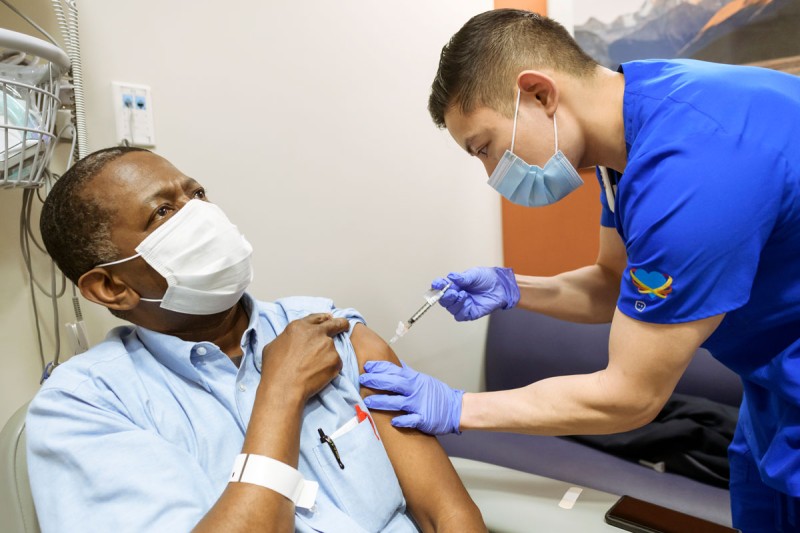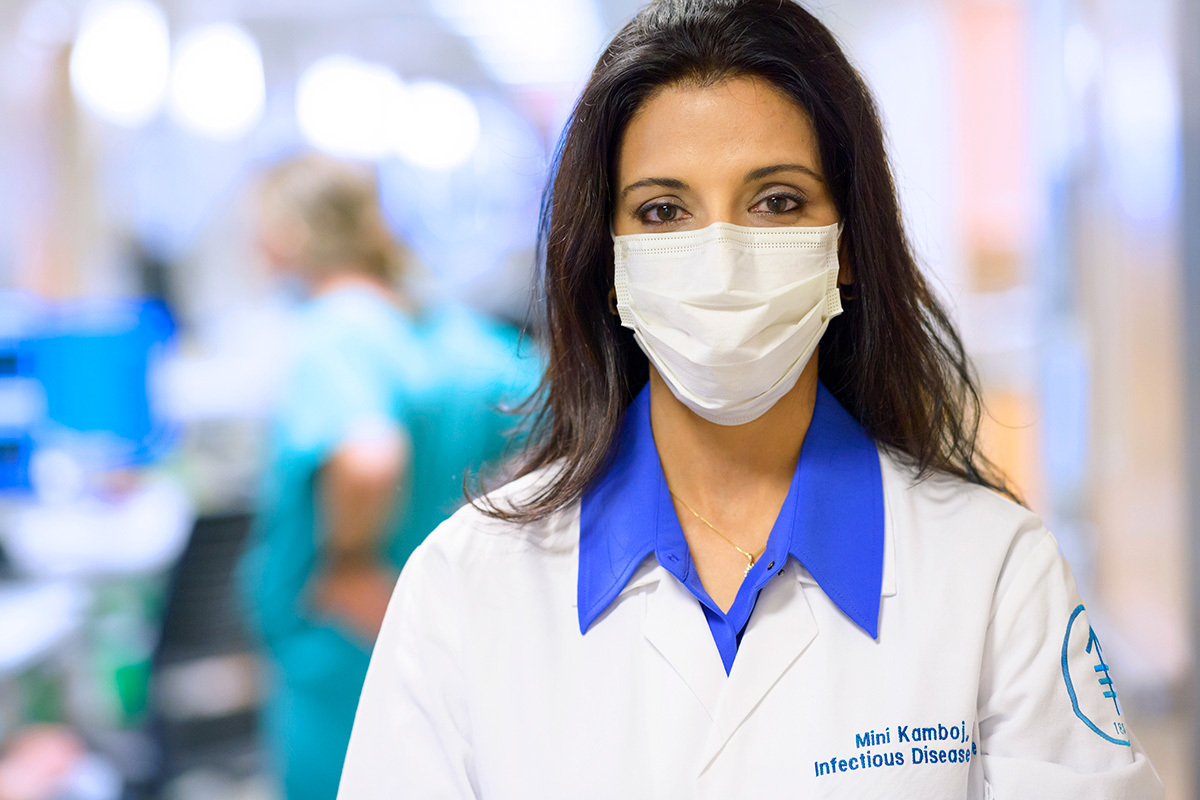
People ages 50 to 74 who are at risk for getting very sick from RSV can get vaccinated, after talking with their doctor. People ages 75 and older should get an RSV vaccine.

Mini Kamboj has answers to some frequently asked questions about the RSV vaccines. Dr. Kamboj is Chief Medical Epidemiologist at Memorial Sloan Kettering Cancer Center (MSK).
What is RSV? How does it spread?
RSV stands for respiratory syncytial virus. It’s a very contagious (spreads easily) respiratory disease that spreads in the fall and winter months.
Most people get only a mild illness from an RSV infection. However, RSV can make older adults and young children very sick. It also can make people with medical conditions, such as weakened immune systems, very ill.
RSV spreads by:
- Inhaling droplets when people cough or sneeze. Masks protect you from many common respiratory illnesses, including RSV.
- Touching a surface that has droplets from a cough or a sneeze from an infected person. If you touch that surface, and then touch your nose, mouth, or eyes, you could get infected. You can kill RSV by cleaning your hands with soap and water or with an alcohol-based hand sanitizer.
Is RSV common? Will RSV harm me?
RSV is a common illness that spreads more in the fall and winter. For most people, RSV feels like a cold and lasts 1 to 2 weeks.
In some people, RSV can cause lower respiratory tract disease. This can lead to pneumonia (lung infection) or bronchiolitis (swelling of the lungs’ small airways).
Lower respiratory tract disease caused by RSV is more dangerous for infants and older adults. It’s also more harmful for people with weakened immune systems. This includes some people who have cancer or have been treated for it.
How well do the RSV vaccines work?
There are 3 vaccines, and they all work very well. All 3 vaccines are very good at stopping lower respiratory tract disease caused by RSV.
RSV is very hard to avoid completely. Getting the vaccine is so important. It can lower your risk of getting really sick with lower respiratory tract disease.
Will I need a shot for RSV every year, just like the flu shot?
You only need 1 dose of the vaccine. You don’t need an RSV shot every year.
Should I get the RSV vaccine if I have cancer or have had cancer?
RSV vaccines are safe for people who have cancer and are eligible to get the shot. They are non-live vaccines that contain a part of the RSV virus (called a protein). The vaccines do not contain a whole virus or a live virus. RSV vaccines cannot cause an infection in people with weakened immune systems.
If you are at least 50 years old and have been treated for cancer, talk with your MSK doctor about getting an RSV vaccine. Cancer and cancer treatment can weaken your immune system. It’s important to avoid any virus, infection, or other sickness, including RSV.
The research studies, also known as clinical trials, for the RSV vaccines did not include people with weakened immune systems. Real-world data show benefits in people with weakened immune systems.
What are the side effects of the RSV vaccine?
The vaccines have similar side effects. Most common side effects are mild and go away after a few days. People who had the vaccines reported:
- Pain where they get the shot
- Fatigue (feeling more weak or tired than usual)
- Headache
- Muscle pain
Rare cases of a neurological syndrome were seen in clinical trials, and the FDA will continue to closely monitor this.
Can I get the RSV vaccine at MSK?
Yes, we offer the RSV vaccine for our patients. Ask a member of your care team for more information.
You don’t need to get vaccinated at MSK. Go to vaccines.gov to get a vaccine near you.